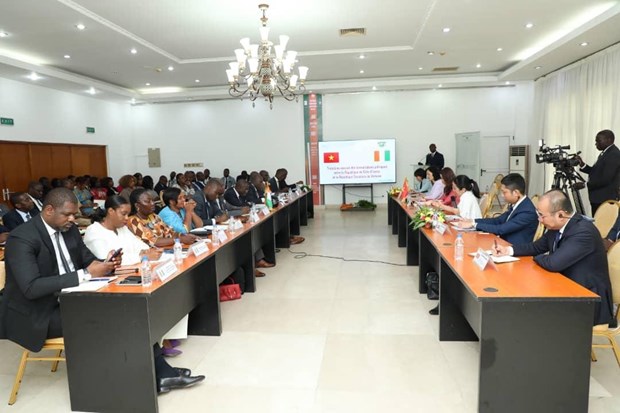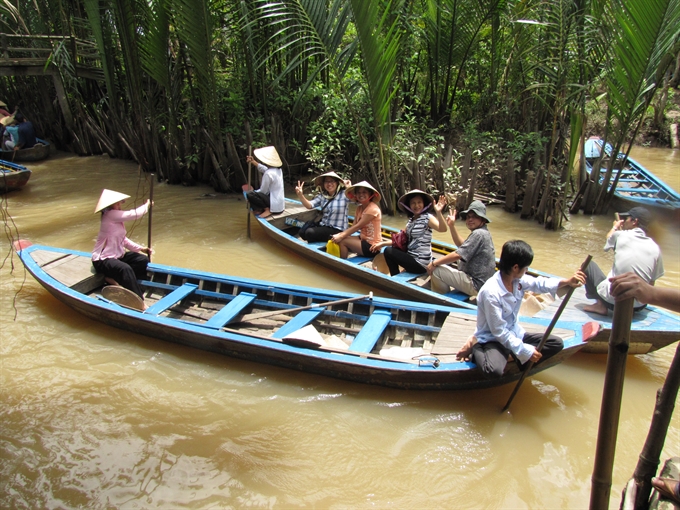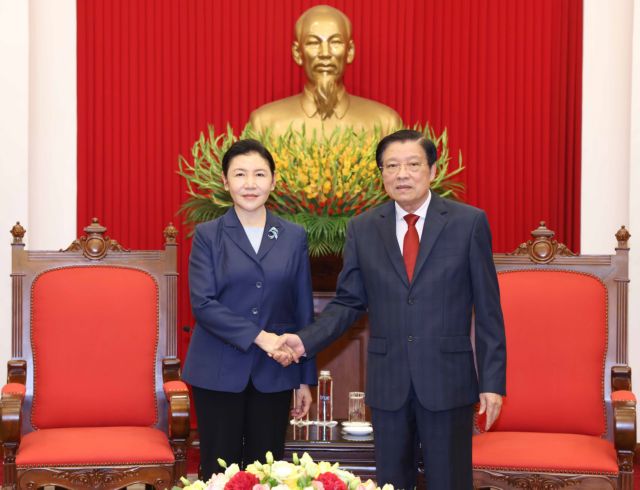 Politics & Laws
Politics & Laws

Politburo Member, Chairman of Southwestern Steering Committee and Deputy Prime Minister Vương Đình Huệ urged local governments to perform better administration reforms to attract more investment to the Mekong Delta.
 |
| Tourists visit the Cà Mau southern most province. Deputy Prime Minister Vương Đình Huệ urged local governments to perform better administration reforms to attract more investment to the Mekong Delta. – VNA/VNS Photo |
HẬU GIANG – Politburo Member, Chairman of Southwestern Steering Committee and Deputy Prime Minister Vương Đình Huệ urged local governments to perform better administration reforms to attract more investment to the Mekong Delta.
Deputy PM Huệ spoke during the opening speech for the 9th Mekong Delta Economic Develoment Forum, on the theme “Mekong Delta – Active Integration and Sustainable Development” last night in Vị Thanh City, Hậu Giang Province.
He praised several policies have been brought to life, stimulating the delta’s development after previous forums where local officials, scientists and entrepreneurs suggested the delta’s sustainable development amid climate change challenges.
Connectivity between provinces in the delta and with other localities in the country has been improved. Forum participants should discuss how the Delta can be proactive in global integration and work closely with other countries since Việt Nam has great opportunities and challenges in the integration period, Huệ suggested.
“Mekong Delta faces serious losses from climate change and sea level rises and salt water intrusion. People in the delta have deployed various solutions to adapt with climate change and prepare for global economic integration,” he said.
Connectivity between localities, sectors and people is key for a sustainable livelihood of inhabitants in Mekong Delta under the threat of climate change, said Huệ, reminding Việt Nam of its membership of the Trans-Pacific Partnership.
At the opening speech, Huệ announced that the World Bank and the State Bank of Việt Nam yesterday signed an agreement in Cần Thơ City on a US$560-million loan package for sustainable development of the Mekong Delta, adapting to climate change.
At the forum, major issues related to climate change and sea level rises, such as drought and salinity intrusion, are also being discussed, along with technology applications in agriculture and assistance to local enterprises and farmers.
At the end of the week, the forum’s participants plan to issue a joint statement, with suggestions on solutions for the region’s development. It will be sent to the Prime Minister for approval.
“Climate change is no longer an abstract warning, but is directly threatening the delta’s sustainable development,” said Sơn Minh Thắng, deputy chairman of the Southwestern Steering Committee, a central group that oversees the Delta’s 13 provinces and city.
With recent events like the historic drought, the worst in 90 years, along with saline intrusion, the need to improve linkages among provinces as well as with other regional countries is more important than ever, Thắng said, adding that Mekong Delta has advantage, but it faces much challenge.
With 1.5 million hectares of land for paddy cultivation, the Mekong Delta plays a key role in the country’s food security goals. It produces 50 per cent of food, 70 per cent of seafood exports, and 90 per cent of rice exports of the country’s total.
It has 700 kilometres of coastline with picturesque beaches and three biosphere reserves recognised as international Ramsar sites, a rich resource for tourism development.
As of June 2016, the delta had attracted 1,348 foreign direct investment projects with total registered capital of US$20 billion, contributing seven per cent of the country’s FDI, according to the Ministry of Planning and Investment.
During the first six months of the year, the region received investment from 80 large projects in various sectors, including power, infrastructure, shoes and paper.
Before this year, total foreign direct investment in the region accounted for only 5 per cent of the FDI in the country, but the rate is now seven per cent, indicating that new roads and bridges between the Delta and HCM City have shortened travel times and attracted more investors.
Though the Delta has a large labour force and abundant raw materials, its economic growth has yet to meet its potential, as regional linkages remain weak. It also lacks quality agricultural raw materials to export, and has inadequate infrastructure.
To take advantage of the upcoming Trans-Pacific Partnership trade agreement, officials, experts and entrepreneurs at the forum will suggest solutions to increase the value of the region’s products.
Other events at the forum include seminars on credit, integration and sustainable development, ways to control drought and salinity, and storage of fresh water for business production and residential use.
The Mekong Delta, one of the richest deltas in South East Asia also contributes 55 percent of paddy output, 60 percent of seafood, 70 percent of fruits and 90 percent of the exported rice of Việt Nam.
The region contributes 20 per cent of the country’s GDP. --VNS









